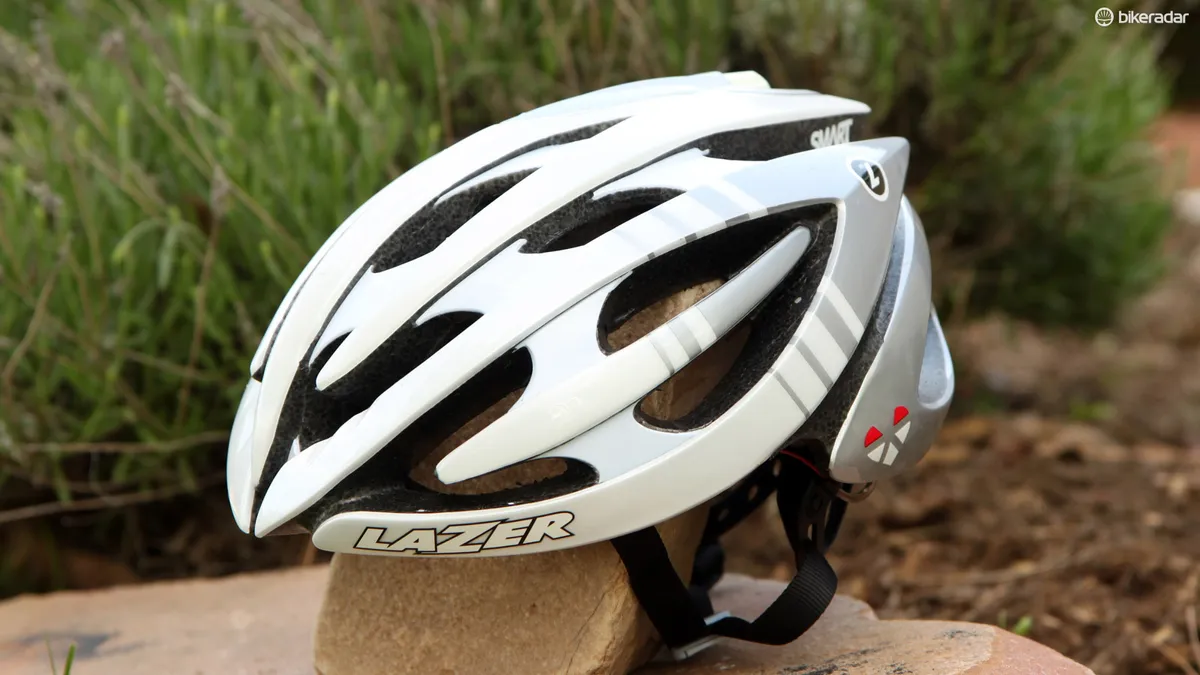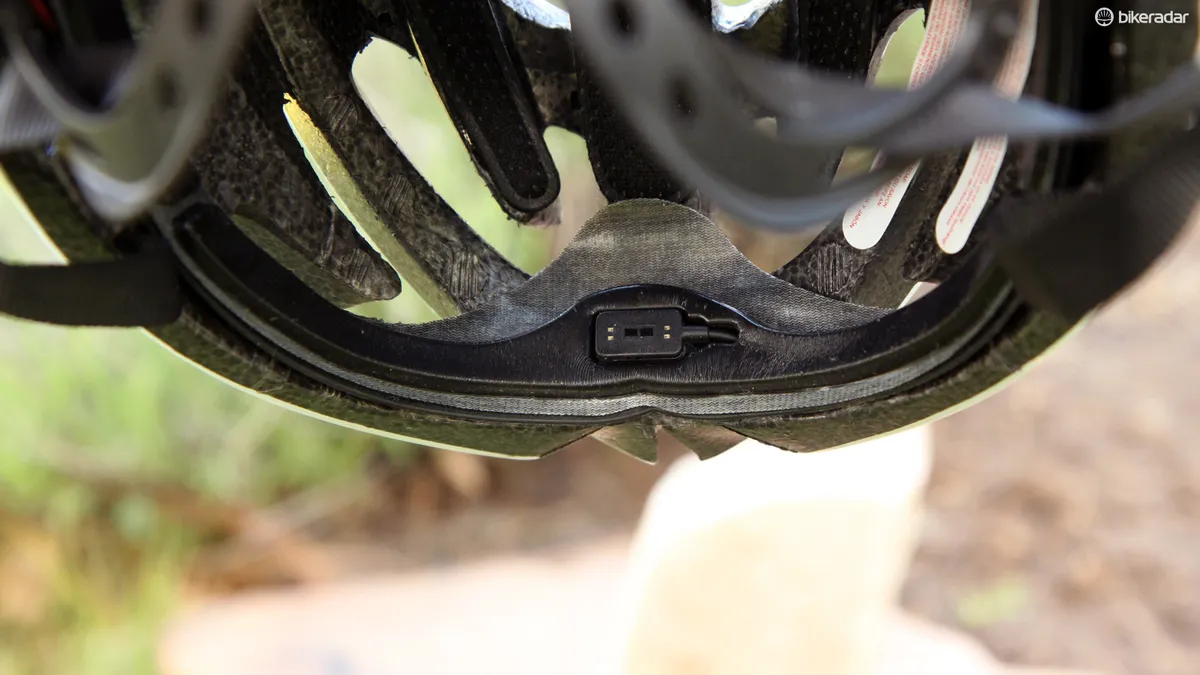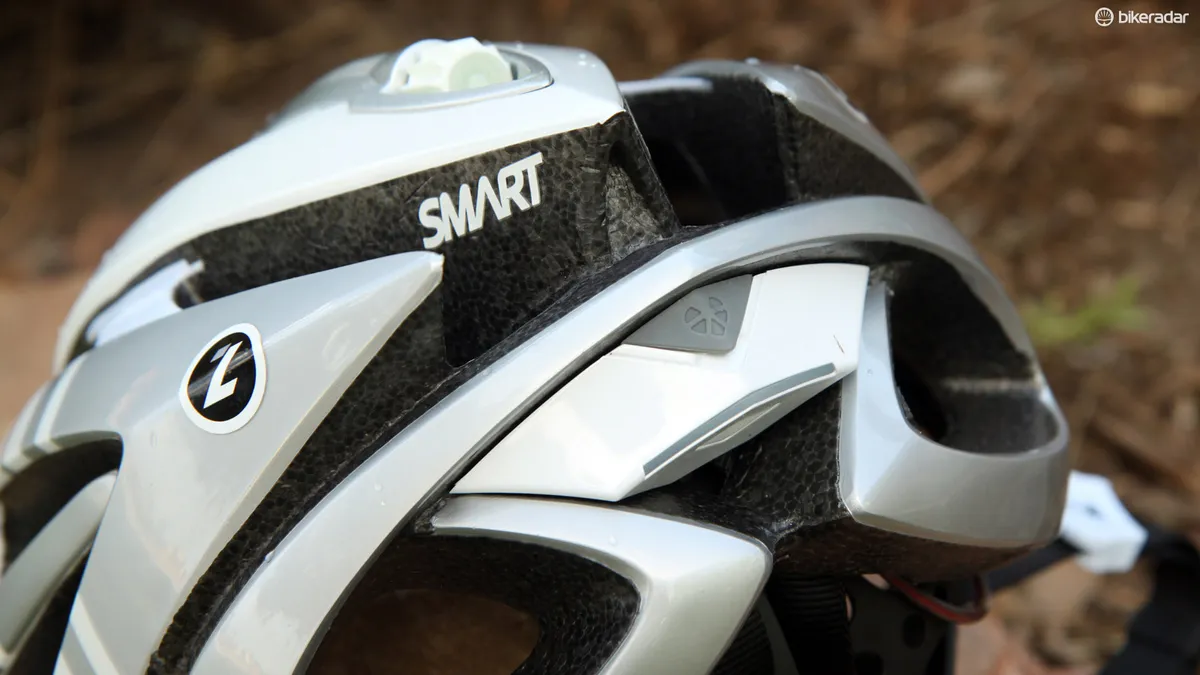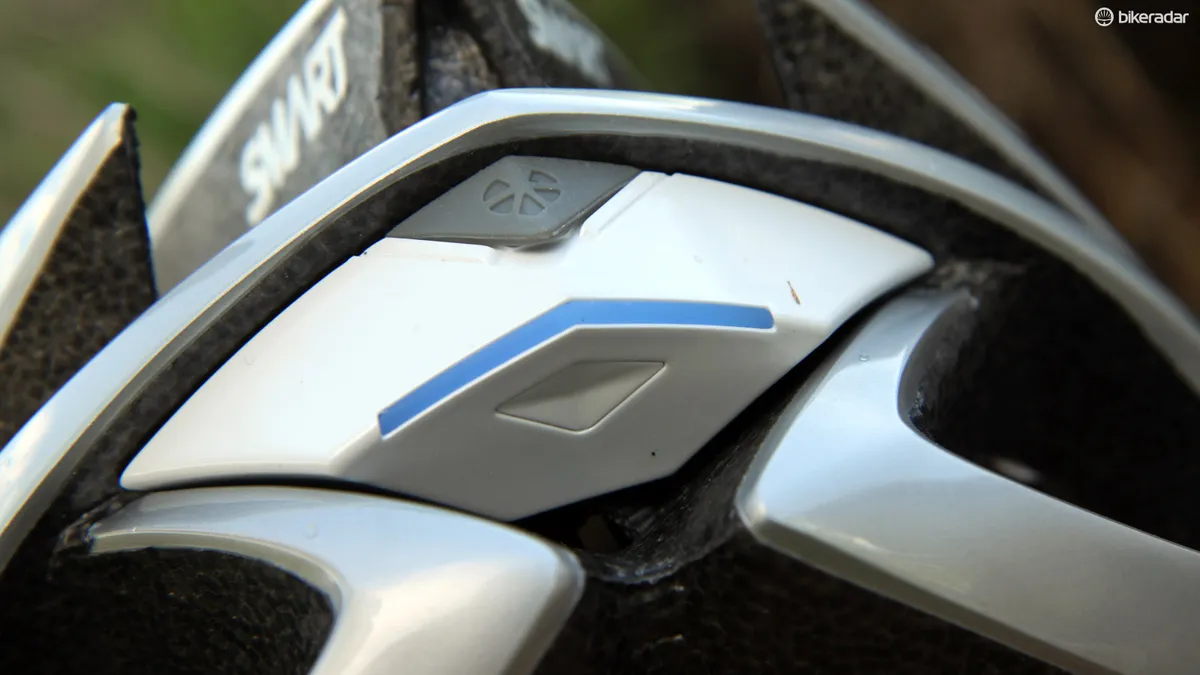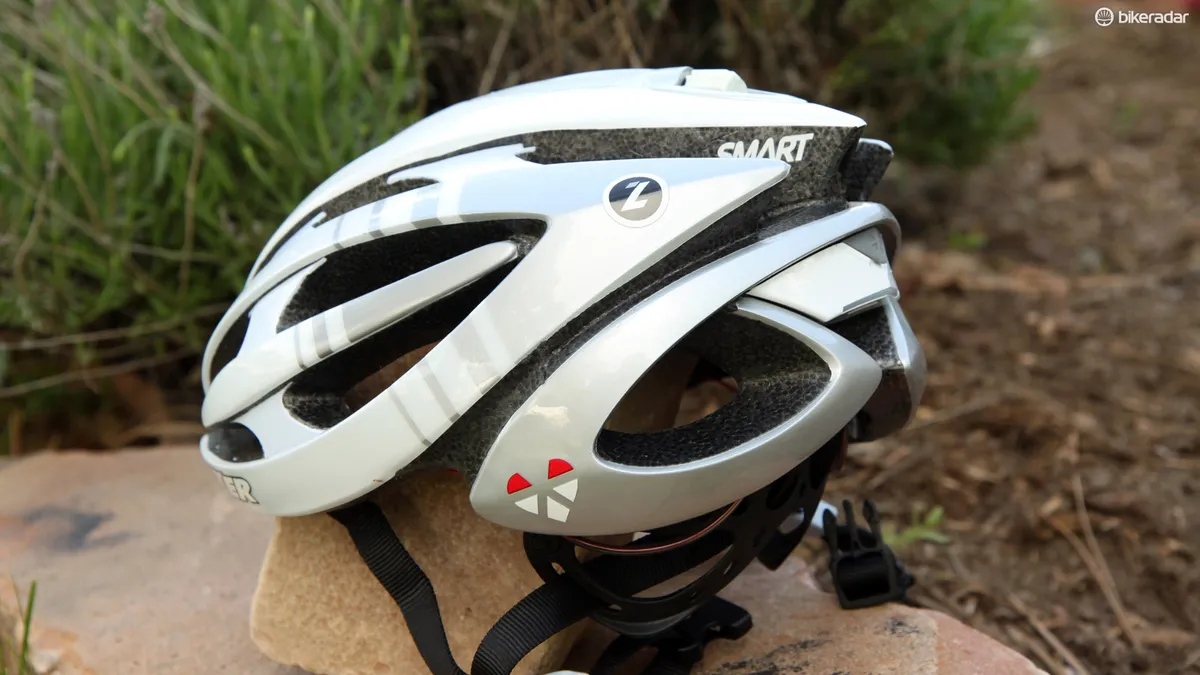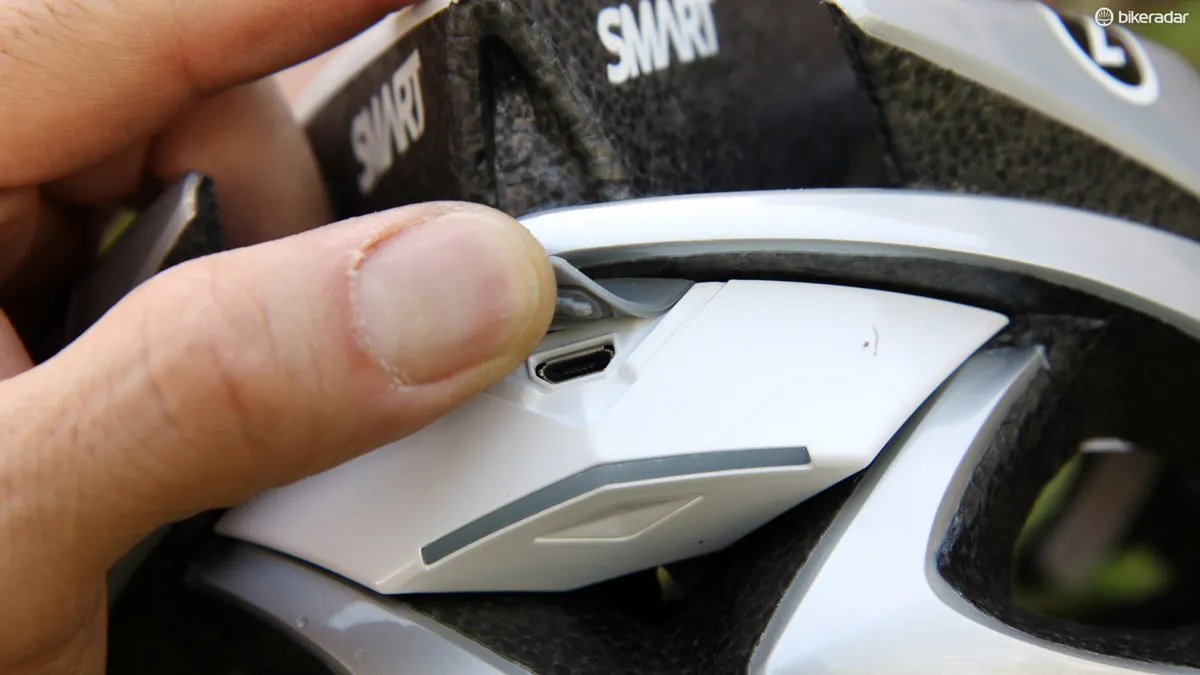If you're tired of chest straps but still want to know your heart rate while riding, there are a few good options out there. The Lazer Genesis LifeBEAM, however, slickly integrates an opto-electrical sensor right into a helmet that not only reads your heart rate just like a traditional setup but in some senses, actually works even better.
- Highs: Cleverly integrated heart rate sensor, good battery life, easy operation
- Lows: Slightly compromised ventilation, somewhat expensive
The Genesis LifeBEAM starts out as a standard Genesis helmet with additional hardware added in. A sensor is positioned right at your forehead to detect the pulsing of blood, while a small electronics box at the back of the helmet wirelessly transmits the signal via ANT+ to any number of compatible devices. In essence, it's much like the little fingertip sensor used by hospitals but in a different location.
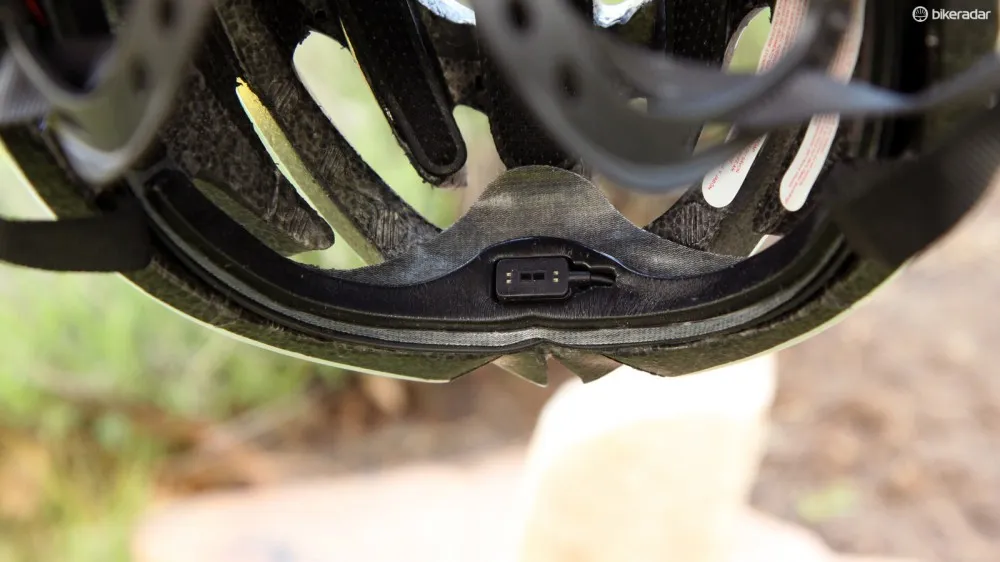
The sensor is positioned right against your forehead
Setup is brutally simple. Just turn on the helmet, put it on, and then tell your compatible device to search for a heart rate signal. Afterward, you just need to fire up the system and your heart rate is instantly detected as soon as you put the helmet on – and we mean instantly.
Whereas traditional heart rate straps typically need some degree of moisture in order to read the minute electrical pulses from your heart (which can occasionally take a while, especially in cold conditions), the LifeBEAM has no such delay. Long-time heart rate strap wearers might also find it surprisingly refreshing after so many years of regular use to not have that constricting elastic band around your chest.
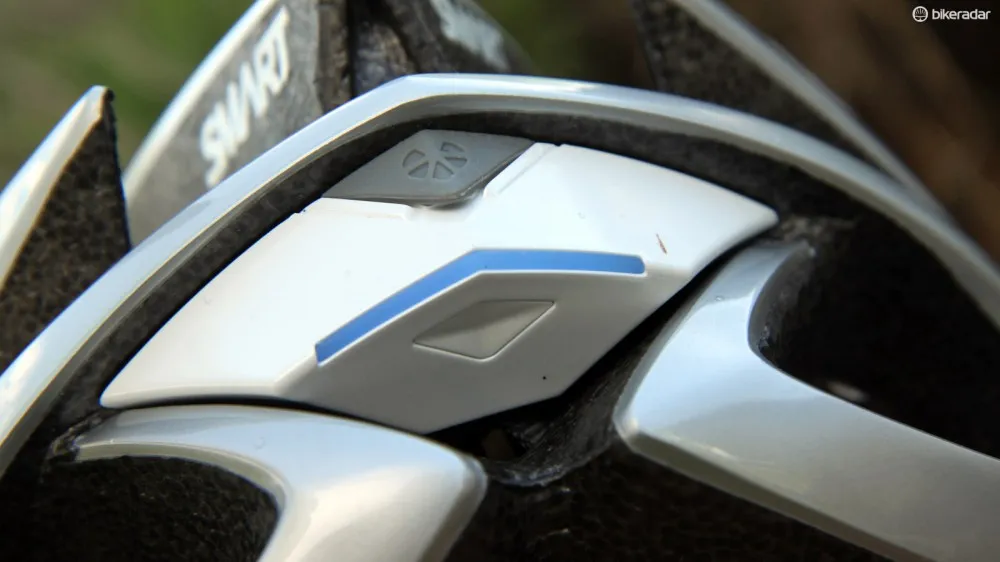
The electronics box at the back of the helmet houses a small rechargeable battery, the wireless transmitter, and a blue LED indicator
We also found LifeBEAM's 15-hour claimed battery life is be just about spot-on and, at 315g, it's – somewhat remarkably – 4g lighter than a standard Genesis we used for comparison here in the BikeRadar office.
All of the features we usually like about the Genesis carry over, too, including a trim outer profile, Lazer's comfy RollSys retention system, and compatibility with the snap-on Aeroshell cover.

From the outside, there's little to give away the fact that you've got a heart rate monitor on your head
One thing that's unfortunately missing, though, is the Genesis's reasonably good ventilation. The LifeBEAM add-on's solid, gel-like browpad noticeably restricts airflow in that critical area and the electronics box blocks an exhaust port at the back of the helmet.
As a result, the Genesis LifeBEAM wouldn't be our first choice for riding in hot weather, especially if it's also humid or if your rides regularly include steep climbing.
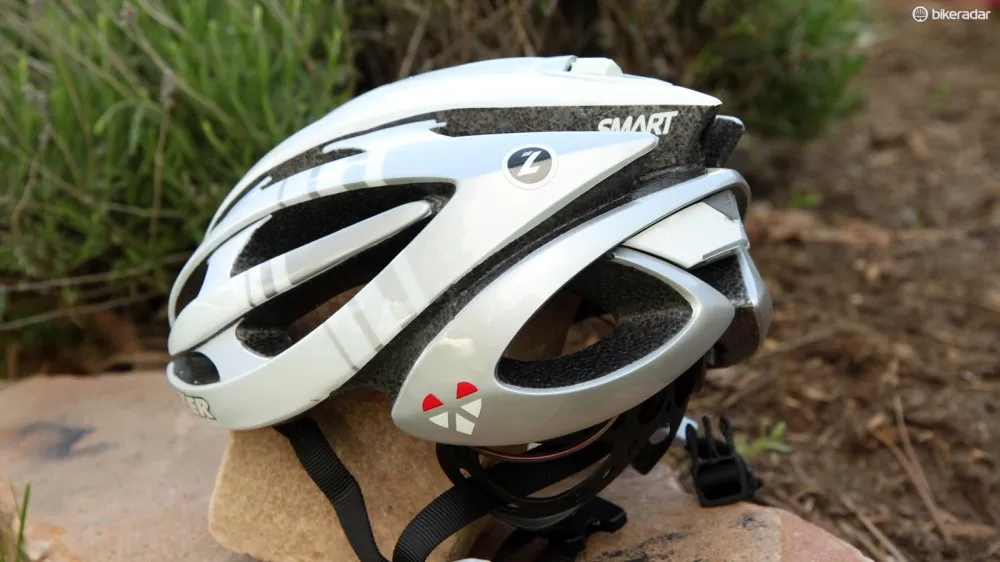
The additional electronics box does block one of the rear vents, however
Lazer also only offers the Genesis LifeBEAM in two sizes, and you'd better like white/silver as it's the only option offered at present. There's also the question of any potential long-term side effects from having an ANT+ wireless transmitter situated right at the base of your brain and, as the LifeBEAM sensor needs to be in direct contact with your skin, you can't easily wear a cap when the mercury drops.
All things considered, the US$250 / £199.99 price is fairly reasonable – US$75 / £75 more than a standard Genesis – but that's probably still too much if all you're looking to do is ditch the chest strap. Riders who still use heart rate and are already in the market for a new helmet, though, should give this one a close look.
